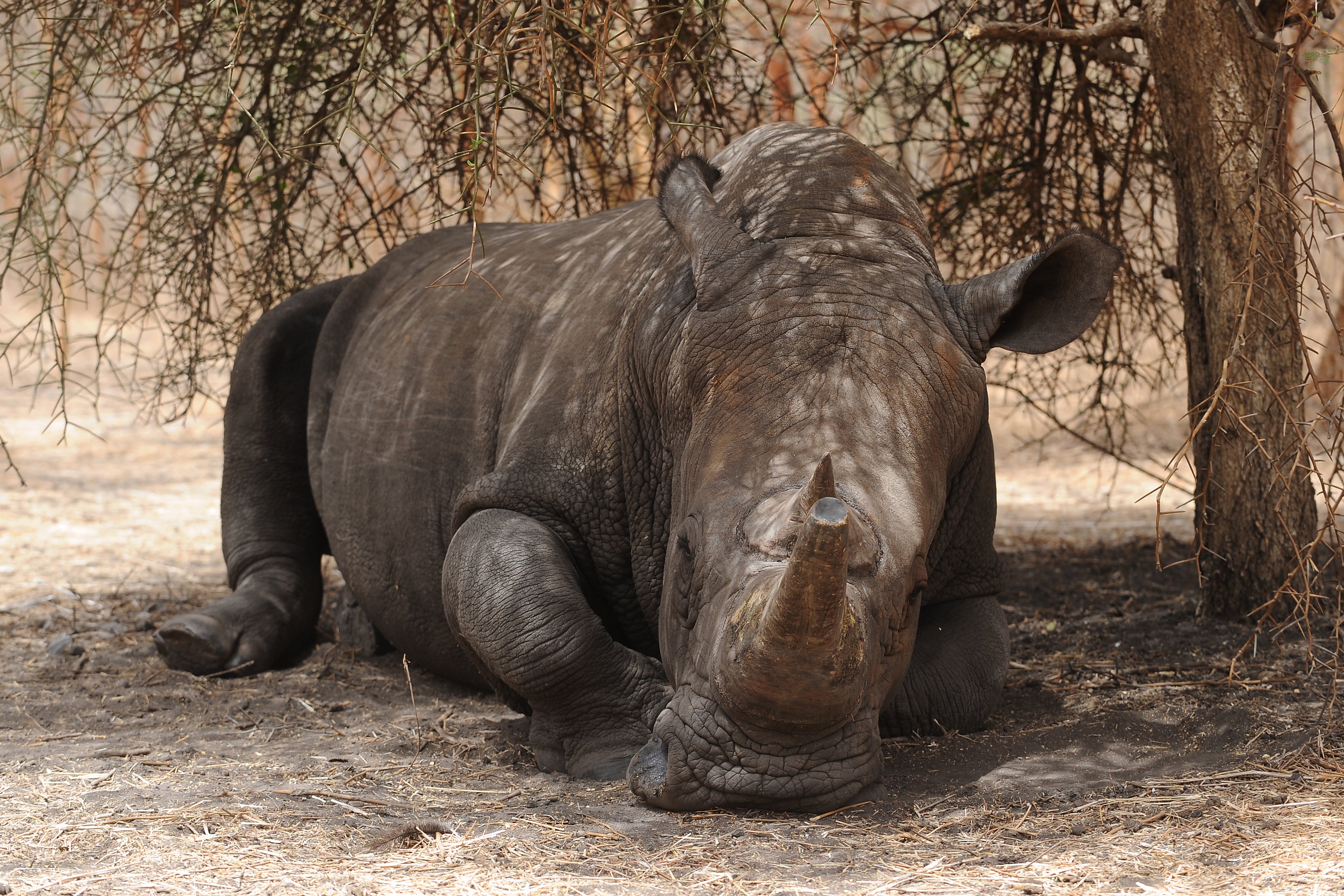Poaching of rhinos ‘shows encouraging decline but remains an acute threat’
A study by conservation experts also found that a reduction in the amount of rhino horns entering illegal markets has also fallen.

Your support helps us to tell the story
From reproductive rights to climate change to Big Tech, The Independent is on the ground when the story is developing. Whether it's investigating the financials of Elon Musk's pro-Trump PAC or producing our latest documentary, 'The A Word', which shines a light on the American women fighting for reproductive rights, we know how important it is to parse out the facts from the messaging.
At such a critical moment in US history, we need reporters on the ground. Your donation allows us to keep sending journalists to speak to both sides of the story.
The Independent is trusted by Americans across the entire political spectrum. And unlike many other quality news outlets, we choose not to lock Americans out of our reporting and analysis with paywalls. We believe quality journalism should be available to everyone, paid for by those who can afford it.
Your support makes all the difference.There has been an “encouraging” decline in the poaching of rhinos, although it remains an acute threat to the animals, conservation experts have said.
A report from the International Union for Conservation of Nature (IUCN) and wildlife trade monitoring network Traffic also suggests the past few years have seen the lowest annual amount of rhino horns entering trade markets since 2013.
The report found that rhino poaching rates in Africa have declined from a peak of 5.3% of the total population on the continent in 2015, to 3.9% in 2018 and 2.3% in 2021.
At least 2,707 rhinos – including white rhinos, which are vulnerable to extinction, and critically endangered black rhino – were poached across Africa between 2018 and 2021, with South Africa accounting for most reported incidents.
Africa’s rhino population declined from an estimated 23,562 in 2018 to 22,137 at the end of 2021.
Global lockdowns and pandemic restrictions saw several African countries experience dramatically reduced poaching rates in 2020, and while lifting of restrictions led to increases in poaching activities in places such as South Africa and Kenya, they are still well below peak levels from 2015.
Poaching of rhinos for their horns, which are primarily made of the same material as hair, hoofs and finger nails, is driven by demand in Asia for medicine to treat conditions ranging from cancer to hangovers, and is even being sold as a sexual stimulant.
The report said that between 575 and 923 rhino horns entered illegal trade markets each year between 2018 and 2020, compared with approximately 2,378 per year between 2016 and 2017.
In 2019, before the Covid-19 pandemic, the reported weight of seized illegal rhino specimens reached its highest point of the decade, which the conservationists said could be due to increased regulations and enforcement efforts.
The report also found that in Asia, populations of vulnerable greater one-horned rhinos and critically endangered Javan rhinos have increased since 2017, with the help of conservation efforts and strengthened law enforcement.
But critically endangered Sumatran rhinos have suffered population declines of 13% a year, with just 34 to 47 left in the wild in 2021.
Sam Ferreira, scientific officer with the IUCN Species Survival Commission’s African rhino specialist group, said: “The overall decline in poaching of rhinos is encouraging, yet this remains an acute threat to the survival of these iconic animals.
“To support the growth of rhino numbers, it is essential to continue active population management and anti-poaching activities for all subspecies across different range states.”